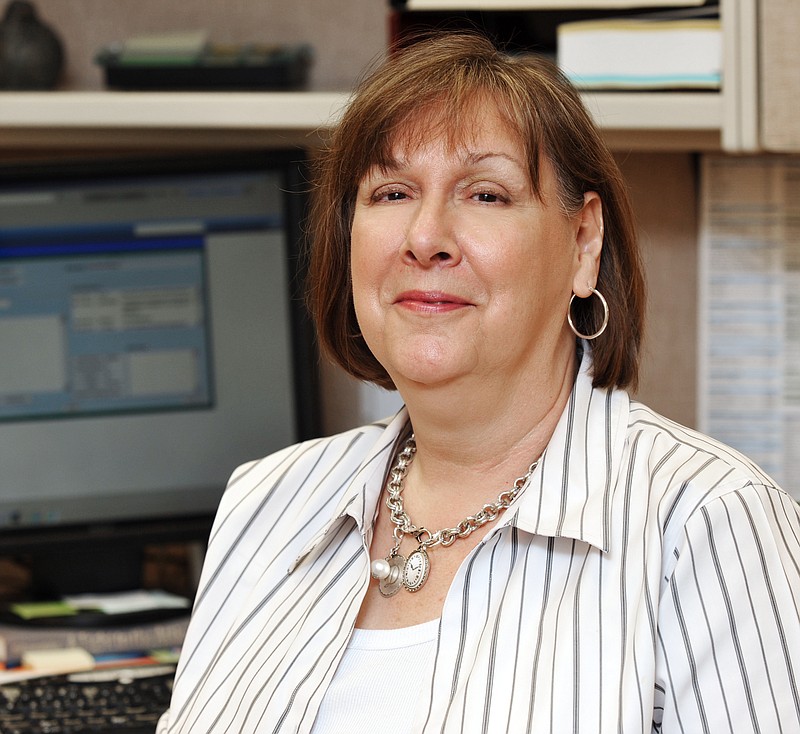"It's been an interesting place to work," said Debbie Schreiber of her 36 years at the Cole County Prosecutor's Office.
"We may do the same thing, but each incident is different."
Dozens of young assistant prosecutors have come in and out of the office and five prosecutors - Jim McHenry, Tom Brown, Richard Callahan, Bill Tacket and Mark Richardson - have been elected in that time.
But like Schreiber, most of the office support staff are long-timers.
"It's never a job you go in and think "it's going to be a boring day,'" she said.
Schreiber, 64, has enjoyed the high demands and fast-paced work environment. But what she will miss most, when she retires Friday, is the camaraderie of the workplace.
In particular, she has valued the combination of youthful optimism and innovation with the wisdom and experience of the long-time staff.
She may not have the legal education, but experience has taught her day-to-day common sense.
Currently, Schreiber works primarily with driving while intoxicated, driving while suspended and minor in possession cases. She also runs background checks through the Missouri Uniformed Law Enforcement System (MULES) for defendants and witnesses.
Through the years, she's worked with every manner of case, from child support and felonies to traffic violations, except for bad checks and restitution.
"I don't like dealing with money," she said.
In 1976, when she was hired, the office included two secretaries, the elected prosecutor and a part-time assistant prosecutor. Today, the office averages more than 20 attorneys and staff.
She started with a typewriter and leaves just in advance of the transition to a "paperless" filing system.
When the Missouri State Penitentiary was open and was the only maximum security prison, many of their cases dealt with assaults, homicides and escapes from within the prison, she recalled.
Drugs are the main culprit in the bulk of today's cases, she suggested. Not necessarily possession, but the activities people engage in related to the substance use.
In the early days, she was able to sit in on a few court cases, to see the entire process unfold. Now, "we make entries and pull files, but we don't go to court."
She also was more involved in helping other aspects of the law enforcement process in the late 1970s and early 1980s. That's how she met her husband, Mark, who had been the prosecutor's investigator.
"Had I known I was going to be there this long, I would've written some things down," Schreiber said.
Not long after she joined the office, two escapees from another state who had been robbing local liquor stores murdered a clerk, and the sheriff's deputies caught them.
Schreiber was called down to type up their statements, only yards away and in view of the criminals.
"It was eerie," she said.
These days, as a legal assistant she still deals with the paperwork, but a step further removed from the offenders.
Processing charges, plea letters and other legal documents, employees in the prosecutor's office have access to many stories and details that might make for good gossip.
However, they hold their responsibilities to a high ethical standard. And that is passed on to each new employee.
"We're very serious about knowing all this stuff," Schreiber said. "You could ruin a whole case or cause someone to be killed.
"If you don't have a reason to know, you're better off not knowing."

